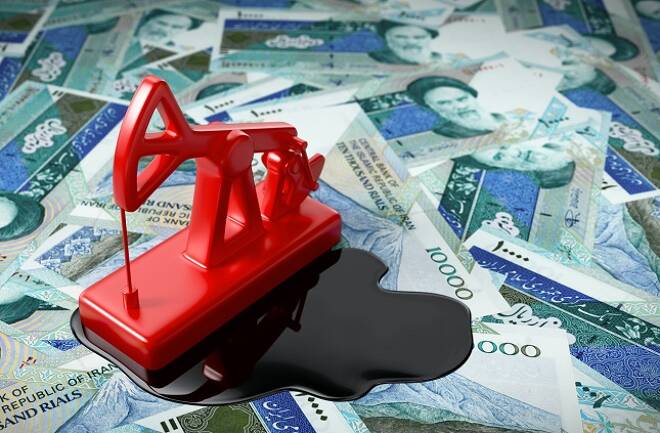Advertisement
Advertisement
Will Hassan Rouhani’s Inauguration Affect the Markets?
Updated: Aug 3, 2017, 11:55 GMT+00:00
When it comes to geopolitical tensions, Iran has been under the spotlight and sharing the stage with US President Donald Trump, whose sentiments towards
When it comes to geopolitical tensions, Iran has been under the spotlight and sharing the stage with US President Donald Trump, whose sentiments towards the nation are no secret. He has not minced his words when it comes to his disdain for the Joint Comprehensive Plan of Action, or JCPOA, colloquially known as the Iranian Nuclear Deal, dubbing it the ‘worst deal ever’ during his campaign. Signed during Barack Obama’s presidency, the JCPOA effectively lifted US economic sanctions in Iran, but that hasn’t stopped Trump from imposing non-nuclear sanctions on the nation – even though there is certification in place that confirms that Iran has been complying with the agreement.
The latest series of sanctions, declared on 18 July, saw over a dozen individuals and groups affected – including a company based in Turkey which provides naval equipment to Tehran and a group of Iranian companies that are involved in the country’s drone programme. As predicted, these sanctions drove WTI Crude prices up over the $47 mark, but dipped to $45 a couple of days later, when OPEC reported increased oil output.
Under this pall of tension and volatility, President Hassan Rouhani – who was re-elected in a landslide victory in May – will be officially sworn into office on 5 August. The question on currency traders’ and investors’ minds is how the global markets will react, if they react at all, to this event. “Rouhani is known to be a reformist, and his vision for Iran includes a prosperous economy and increased oil production, which has investors in Oil and Gas taking notice,” comments Jameel Ahmad, VP of Market Research at FXTM. “When he won in May, the Tehran Stock Exchange index recovered a 5% loss it was experiencing since the beginning of the year, which is a positive affect for him. He wants to bring Iran back to the pre-sanction era, and he has a more open door approach to the international community than some of his more conservative peers, so it will be interesting to see how foreign investors react.”
If recent events are anything to go by, foreign investors will be reacting positively to his inauguration. Iran is already seeing the rewards of having a more pragmatic leader at the helm, Total, a leading energy corporation in France, has penned a multi-billion dollar deal with China’s main Petroleum Company to help Iran develop the South Pars gas field. This news is in line with Europe and China’s anti-isolationist approach, which itself flies in the face of President Trump’s huffing and puffing. Gholamreza Manouchehri, a high ranking official at the National Iranian Oil Co., stated that Rouhani has plans of making 10 initiatives similar to the Total deals one before the end of the Iranian year (20 March, 2018).
It is anticipated that Rouhani’s inauguration in August may not only shake up the Oil and Gas markets in the short term, but forex trading and the wider financial markets will be watching with interest. Donald Trump, is a wild card in the equation but if he can’t resist the urge to further espouse his anti –Iran rhetoric, it could upset the markets. For the time being, oil is more susceptible to OPEC decisions as we’ve seen on 24 July, when it extended gains after more cuts and caps were negotiated.
The heart of the matter is that Iran – and by default, Rouhani himself – is embroiled in too many controversies to stabilise the oil markets. Not only does the future of the JCPOA hang in the balance, but Iran’s close ties with Qatar – who many surrounding countries in the Middle East have recently cut off – is a significant point of contention. The two share the South Pars gas fields, so as long as their relationship and any related business dealings remain intact, they will be at risk of being tarnished by increasing anti Qatar sentiment. Oil and local currency markets are likely to experience waves of volatility as a result.
Rouhani’s positive vision for the country is something that may encourage investors to take another look at Iran. Time will tell how his presidency and reforms will shape and shake up the markets, but as long as the media continues to shine the spotlight on the country and its concomitant woes, investors will be watching it closely.
About the Author
Nikola Grozdanoviccontributor
Nikola, an English Lit graduate, ventured into finance as a writer in 2015, quickly advancing to a senior management position at FXTM. Now freelancing for Exness, he combines his literary background with extensive finance experience to provide insightful articles on the ever-evolving financial industry.
Advertisement
